Massage Titles Matter: Why We Don't Use "Masseuse"
Simply put, this word does not encompass what we do for work.
Source: MassageMag
The History of Masseuse and Masseur
The titles masseur and masseuse have a long and colorful history related to massage. Both terms were used to describe men and women, respectively, who provided massage in exchange for payment. But these terms, especially masseuse, were hijacked by prostitutes operating under the guise of “massage,” beginning in the 1950s.
Over the past 30-plus years, massage professionals have worked to help get laws enacted that protect titles that reflect their training and professional standards. Today, state laws protect titles including massage therapist, massage practitioner and massage technician.
Therapists who attain licensure or certification are allowed to use designations such as L.M.T. for licensed massage therapist and C.M.P. for certified massage practitioner, among others.
States that regulate massage generally require practitioners to graduate from massage school, pass a licensing exam, pay a licensing fee and earn continuing education units in order to maintain licensure. Most massage therapists purchase liability insurance as well. Strict codes of conduct must be adhered to, and therapists who are found to have acted outside the law can lose their license.
Still, the words masseuse and masseur live on as ways of describing the kind of touch not practiced by educated massage professionals. A search online for either word brings up references to services such as “sensual massage” and “massage by men for men only.” Such services should be steered clear of, unless one is willing to participate in probably illegal activity.
“You can read a person’s body language when they are using the term masseuse as a means of being derogatory,” said massage therapist Robin Wooten, L.M.T., who practices in Phoenix, Arizona. “We massage therapists have a duty to educate the public regarding the benefits of massage therapy. It’s the uneducated public that uses terms we deem offensive—it is also the uneducated public who use offensive terms without knowing those terms carry a past connotation.
“Educate, educate, educate,” Wooten added.
In general, massage therapists acknowledge that maintaining a polite demeanor is an important aspect of professionalism, even when a client or acquaintance uses the term masseur or masseuse.
“Some people ask what term is correct, and in those cases I explain we now prefer massage therapist,” said Danette Nelson, L.M.T., who practices in Lakeland, Florida. “If they look curious or ask, ‘Why?’ I sometimes go on to explain that unfortunately, ‘masseuse’ has negative connotations related to prostitution.
“If they don’t ask, I simply use the term massage therapist when referring to myself, and after a couple times, clients usually switch,” Nelson added.
Self-referencing as a massage therapist, as Nelson does, is a technique many practitioners use to gently inform people of their correct title.
“I just use the term massage therapist in the conversation, said Alice Sanvito, L.M.T., who practices in St. Louis, Missouri. “For instance, the other day an elderly gentleman called and asked if I was the masseuse. I responded, ‘Yes, I’m the massage therapist.’”
Where Did Masseuse and Masseur Come From?
The original writings about Per Henrik Ling’s Swedish system of gymnastics, which is considered by many people to be a foundation of Swedish massage (although others say Johann Georg Mezger was more involved in its development—and that’s the topic of another article), used French terms to describe stroking (effleurage); kneading (petrissage); and tapping (tapotement), according to the book The History of Massage: An Illustrated Survey from Around the World, by Robert Noah Calvert (1946–2006), who also founded MASSAGE Magazine. Perhaps this is how the French terms masseur and masseuse became engrained in the American massage profession.
In French, the word masseur is related to the word masser, meaning knead or rub. Masseuse is the feminine form of masseur. These terms remained popular and in use in the U.S. throughout most of the 20th century, until the push toward state massage laws took flight in the 1980s.
Many states’ regulations were initiated in order to control prostitution, because prostitutes had begun advertising their services as massage, and calling themselves masseuses. Today, according to MASSAGE Magazineresearch, 45 states plus the District of Columbia have laws regulating massage.
Patience in the Face of “Masseuse”
Many therapists say title terminology provides an effective way to educate potential clients about the health benefits of massage, as well as the legitimacy of professional massage practice.
What the general public should be aware of is that individuals and the massage profession as a whole have worked tirelessly to secure legal protection for the practice of massage, and for its professional titles.
Still, most massage therapists say that patience—and even a sense of humor—should be maintained when a correction is needed.
“I usually say, ‘Masseur is to massage therapist as stewardess is to flight attendant,’” said massage therapist Scott Blackson, L.M.T., who practices in Milford, Delaware.
“They have to think about that for a minute, so it doesn’t usually come across as angry or condescending,” he added. “If they don’t catch on, I add, ‘I really don’t want to be called a stewardess.’”
